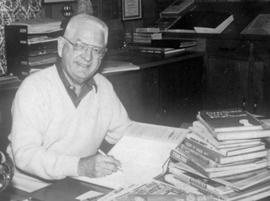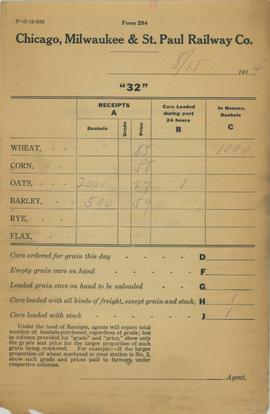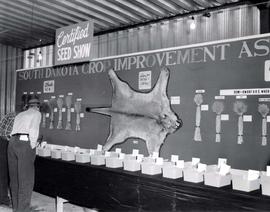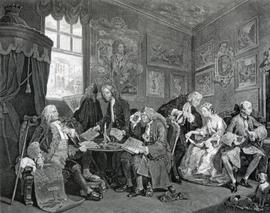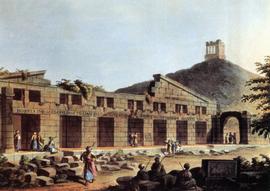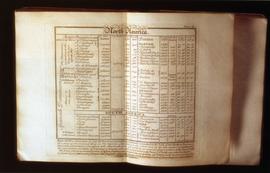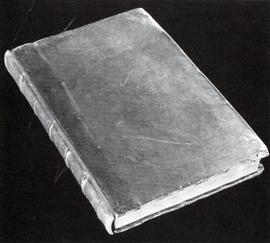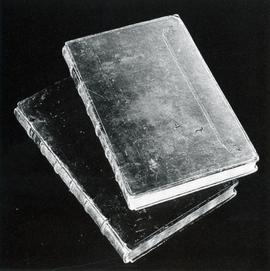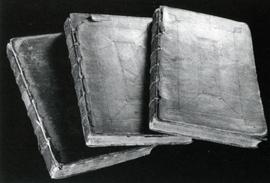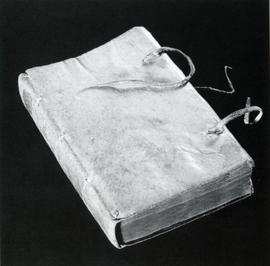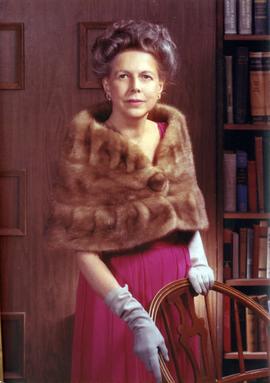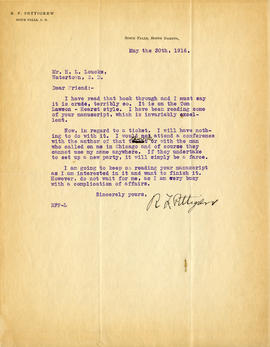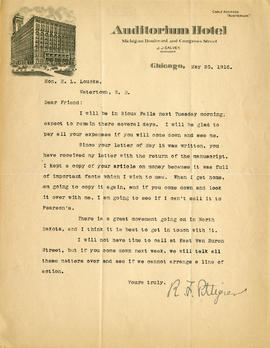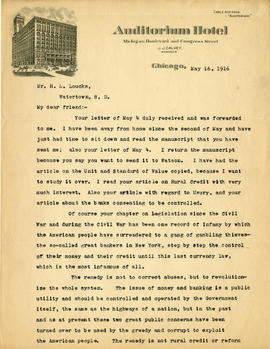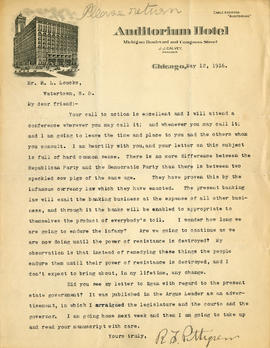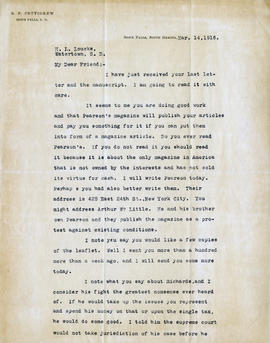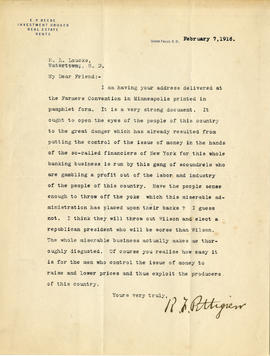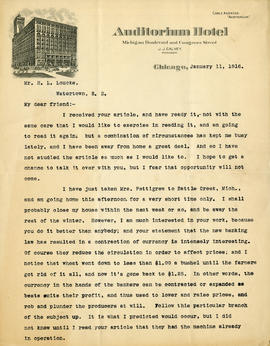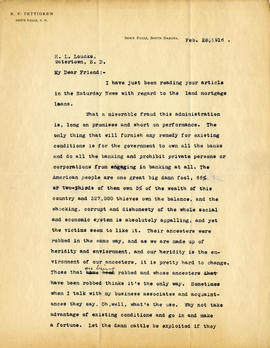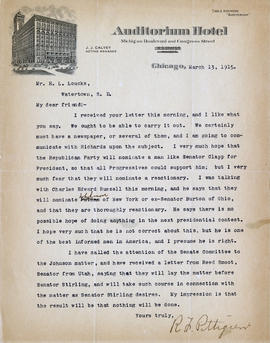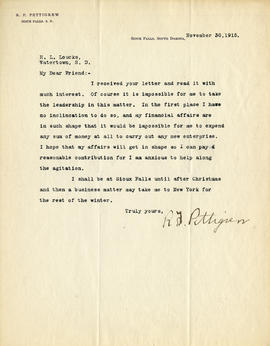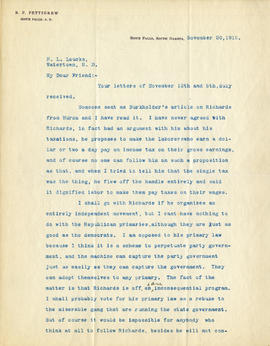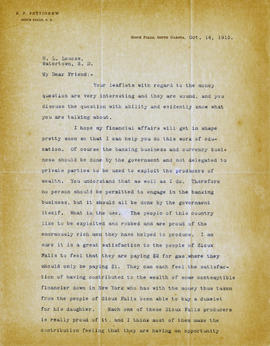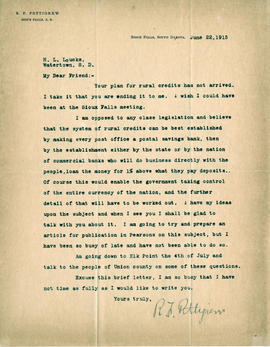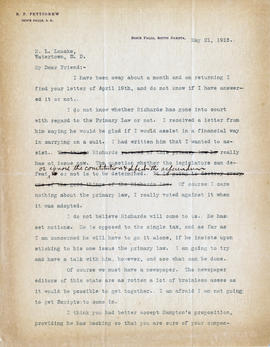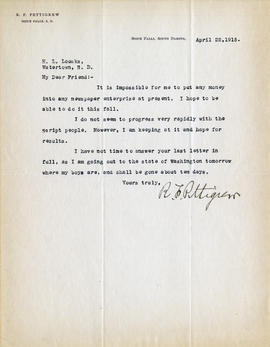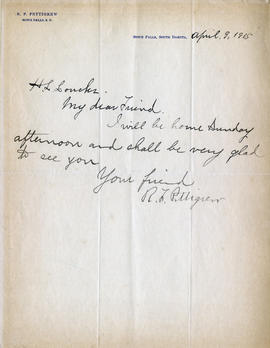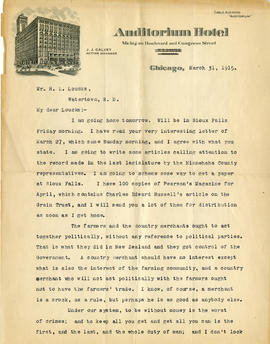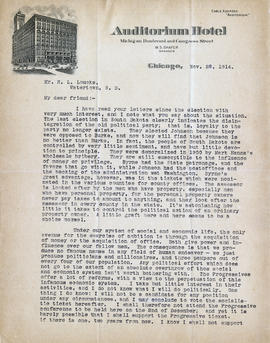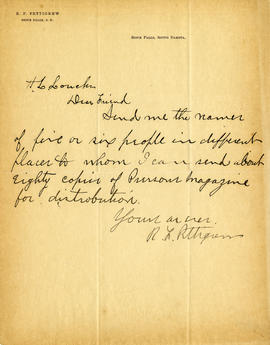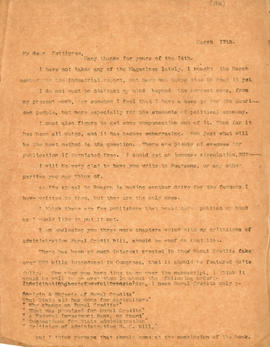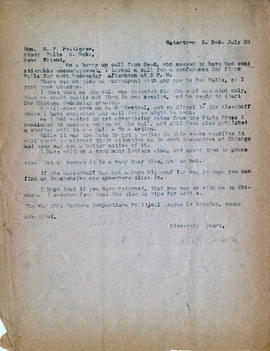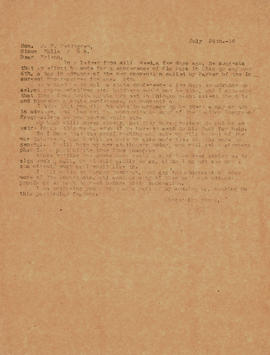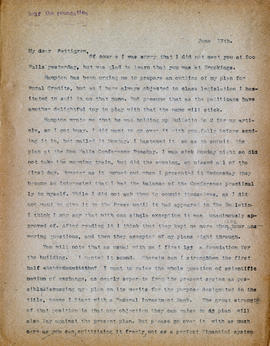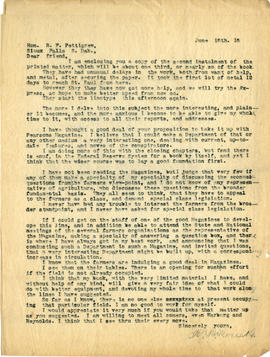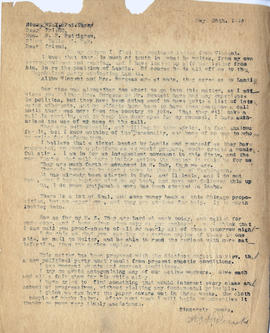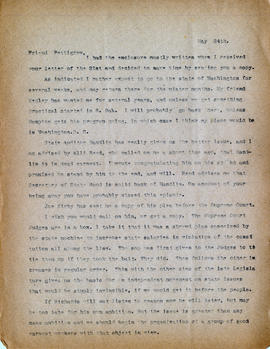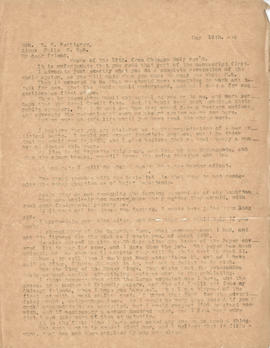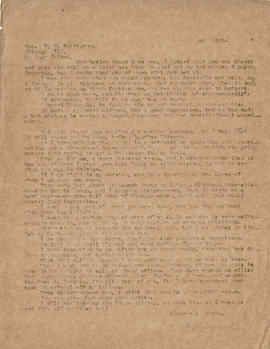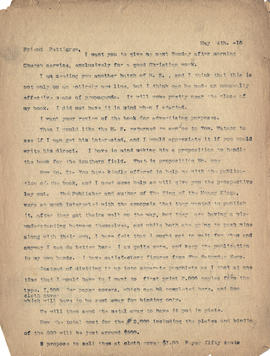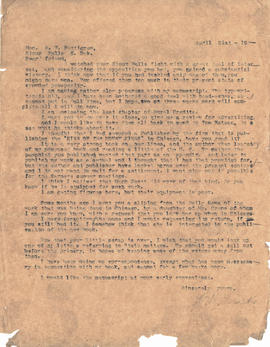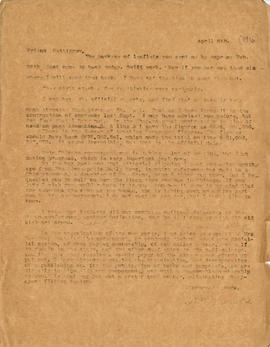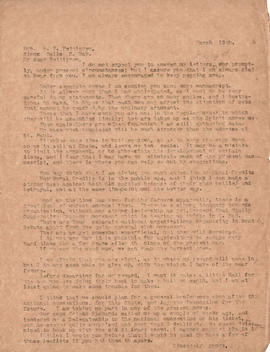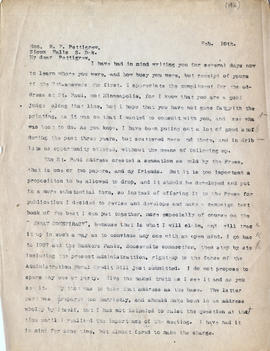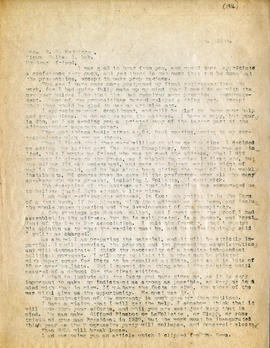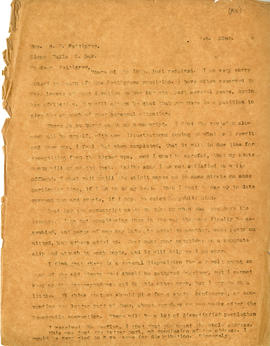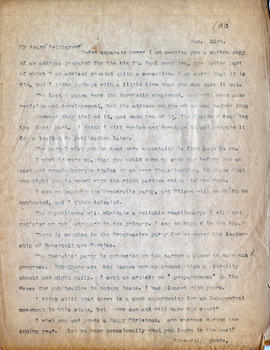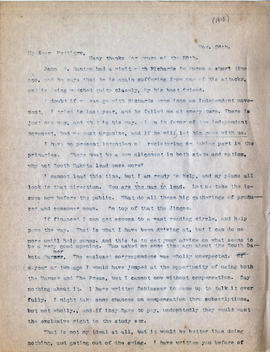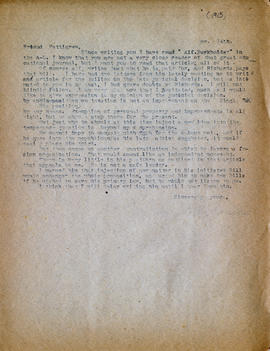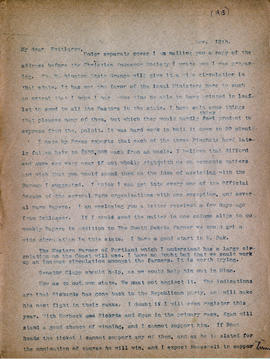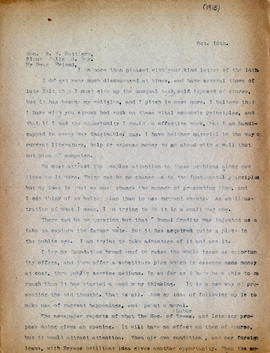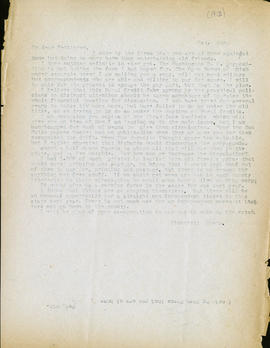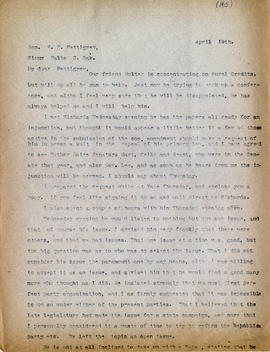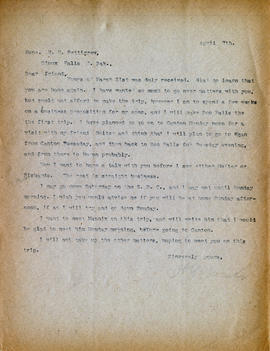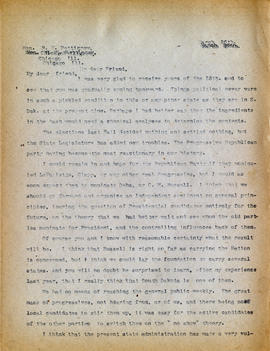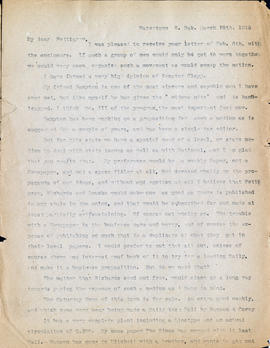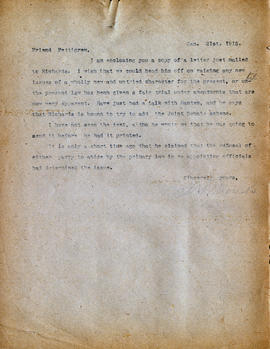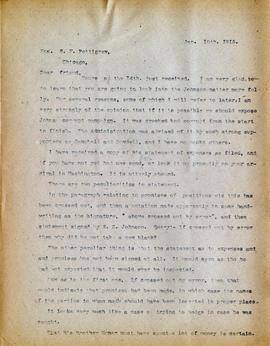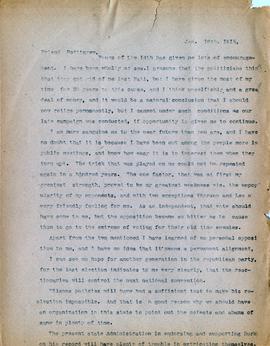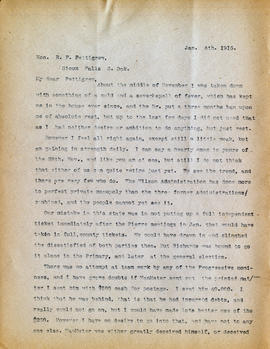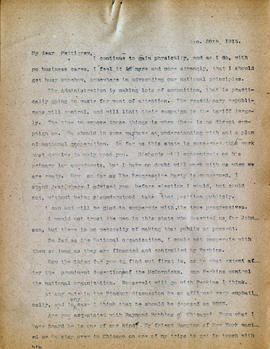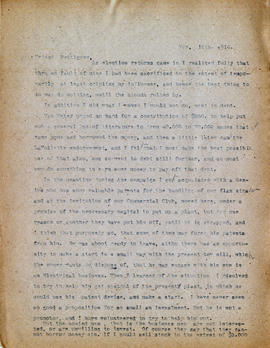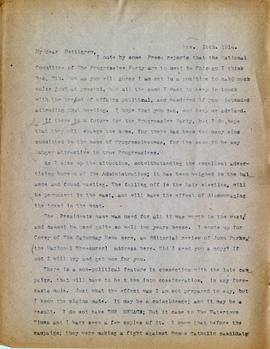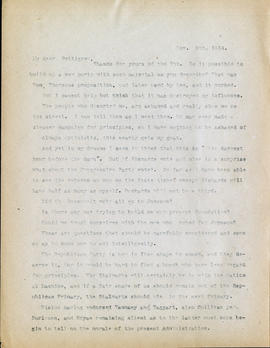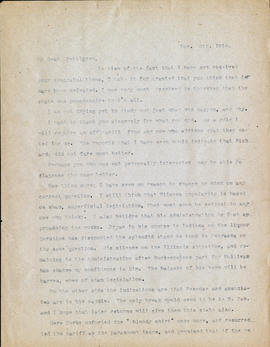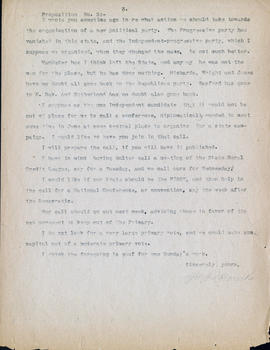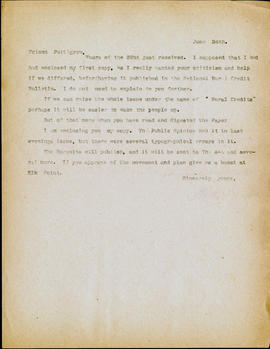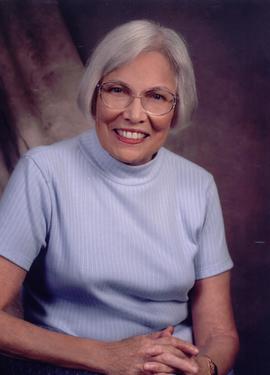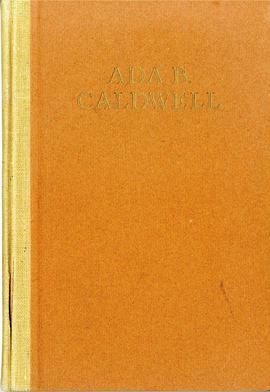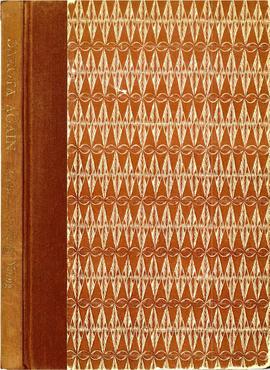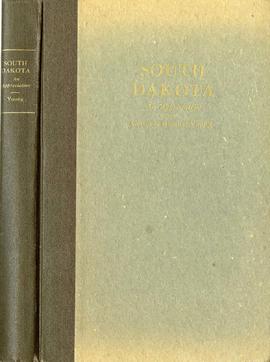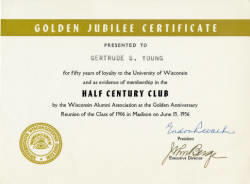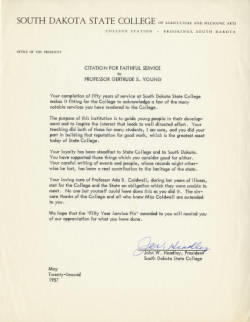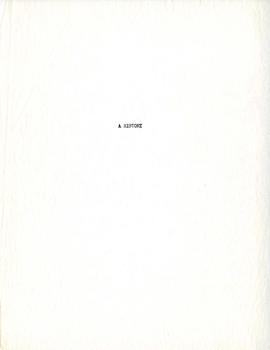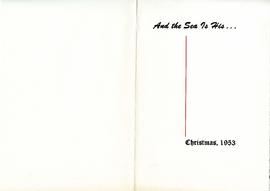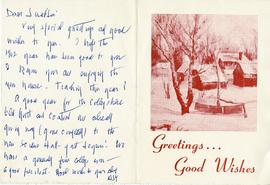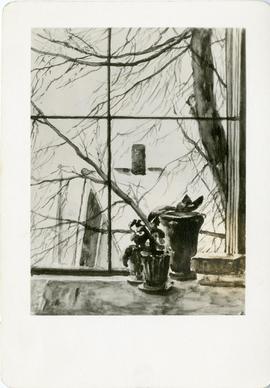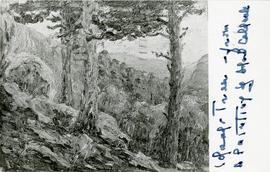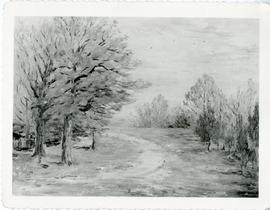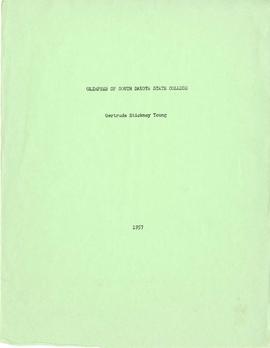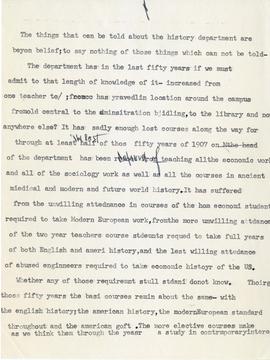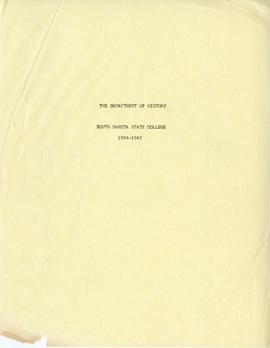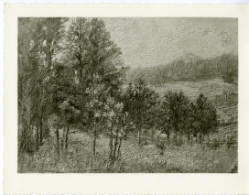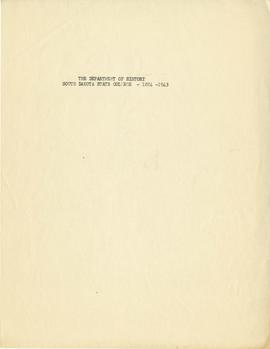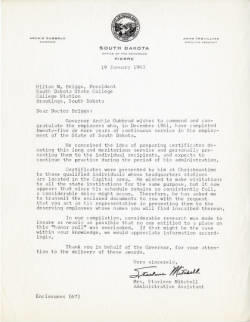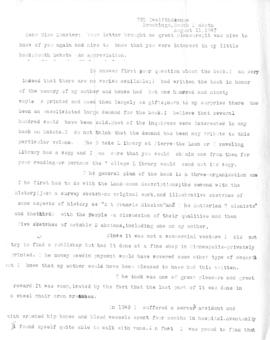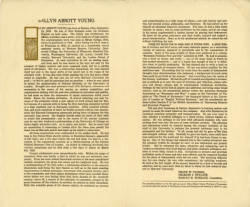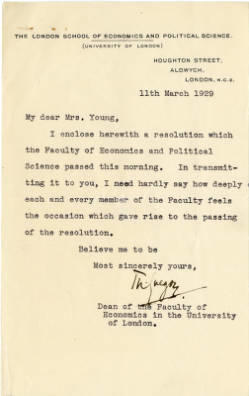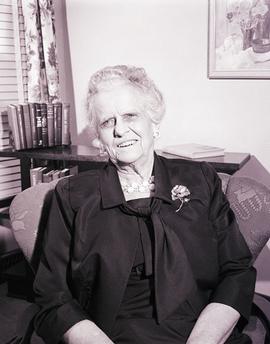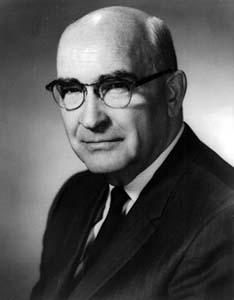The collection is composed of manuscripts, correspondence, galley proofs, research, books and publications related to her published works of fiction and nonfiction.
The general material is composed of Norris' juvenilia from Bennington College, instructors' mid-term and final reports of her course work from college, and biographies and interviews of Norris conducted by various media organizations. Also included is a collection of notebooks from the early 1970's to 2009. These notebooks are spiral bound and appear to be daily journals with notes and drafts of poems and essays. They also contain postcards, clippings, business cards, prayer cards, photographs, recipes, etc. Of note is the manuscript for “Elizabeth Kray’s Letters, Memos, and Notes to Marie Bullock: Two Great Ladies of American Poetry”. A 1937 edition of “Conversation at Midnight” by Edna St. Vincent Millay and signed by John H. Norris is also included.
Poetry is composed of Norris' poetry in anthologies, books, catalogs, chapbooks, contributions, and periodicals. These publications all include Norris' poetry, and some also include works by her husband, David Dwyer, (this will be noted on the front of the folder).
Nonfiction books consist of draft and annotated manuscript pages, galley proofs, cover art and typeface layout, book jackets, book notes, correspondence, research, reviews, audio books, international editions, promotional material, book tour information, advance proofs, hard cover and paperback books. Material varies with each book title. This material is arranged alphabetically by publication title.
Other writings consist mainly of essays, reviews, and sermons published in journals, anthologies, books, textbooks, etc. Also included are scripture reflections for daily devotions, Afterword’s, Forewords, Introductions, Prefaces, and Symposia to which Norris has contributed.
Works mentioning Norris are also included. They are composed of publications with articles mention Kathleen Norris.
The papers of Robert F. Karolevitz (1922-) span the years 1833-2005, with the bulk of the material dating from 1910-1999. The collection is composed personal, professional, and research files, as well as photographs.
The personal files span the years 1894-2005, with the bulk of the material dating from 1968-1981. The bulk of this series is composed of material relating to personal areas of Karolevitz's life not directly related with his professional writing career. The exception to this would be the correspondence series which is composed of material related to both his professional and personal life and includes correspondence with family members and friends. Materials include audio visual material, awards and recognition, clubs and organizations, committees and boards, correspondence, education, ephemera and collected materials, family, financial and legal documents, and material related to Karolevitz’s other interests and activities.
The professional files span the years 1947-2002, with the bulk of the material dating from 1960-1969. The series consists of material created by Karolevitz during his career. Included are articles that were published in various periodicals, manuscripts and other material related to books written by Karolevitz, columns written for several different newspapers, commercial writing and advertising material, political ghostwriting material and speech files. Also included is material related to publishers, other writings, and other material related to writings, such as layout material, rejection slips, and catalogs that listed his books for sale.
The research files span the years 1833-2005, with the bulk of the material dating from 1910-1999. The series is composed of material collected by Karolevitz relating either directly to research for books and articles that he wrote or material that was of interest to him. Material consists mainly of clippings of newspapers and magazine articles, publications, booklets, brochures, pamphlets, photographs and illustrations, correspondence, notes written by Karolevitz and other miscellaneous collected material. Many folders contain only one or a few items.
The photographs are composed of images Karolevitz collected and used in his many publications. Included are images related to automobiles, journalism, medicine, religion, people, and places.
Karolevitz, Robert F.This collection originated from the Madison, S.D. Railway Depot and was then donated to Prairie Village of Madison. The barn in which Prairie Village kept the records burned down but the records were salvaged. The collection provides a variety of different communications and report information, and is an excellent source to view original documentation. However, the collection is not a complete record of all communications and so is not an effective source for researching specific transactions, etc. It is organized into folders each containing a different form of communication used by the railroad company. The beginning of the collection contains all photocopied material. The middle of the collection contains the encapsulated material, and the end of the collection contains the samples of original records.
Because this collection was damaged in a fire all records received were photocopied with only a few original samples retained from each category of the collection. Some unique samples were encapsulated for easier handling and display.
Chicago, Milwaukee, and St. Paul Railway CompanyConsists mainly of minutes and agendas from meetings of the SDCIA, along with the programs, letters, reports and pamphlets that were dealt with in each meeting. The minutes include minutes from the annual meetings, board of directors meetings, committee meetings and district meetings. There are programs for the annual meetings, crop shows and banquets. The letters include correspondence with members of the Crop Improvement Associations of other states and with the national Association of Official Seed Certifying Agencies, as well as between SDCIA members. The reports include financial reports and statements, and also reports on the activities of the organization. The pamphlets include the SDCIA newsletter (The Crop Improvement Reporter), CIA newsletters from the surrounding states, booklets of weed laws, and seed certification manuals. In addition there is a history article that was prepared for the agency’s 75th anniversary in the year 2000.
The collection also contains photographs. These are primarily photos of the various crop shows and field days held by the SDCIA.
South Dakota Crop Improvement AssociationThe works of William Hogarth: from the original plates, restored by James Heath; with the addition of many subjects not before collected; to which are prefixed, A biographical essay on the genius and productions of Hogarth, and explanations of the subjects of the plates by John Nichols
London: Printed for Baldwin and Cradock by G. Woodfall, [1880?]
William Hogarth was a major figure among eighteenth-century engravers and painters. He excelled at portrait painting and displaying a satiric style.
Hogarth, William, 1697-1764Views in the Ottoman empire, chiefly in Caramania, a part of Asia Minor hitherto unexplored : with some curious selections from the islands of Rhodes and Cyprus, and the celebrated cities of Corinth, Carthage, and Tripoli: from the original drawings in the possession of Sir R. Ainslie, taken during his embassy to Constantinople
London: R. Bowyer, 1803
Luigi Mayer was a watercolorist and draftsman of Italian origin. Mayer’s sketches have been cited as the most accurate representations of the Middle East prior to the nineteenth century.
Mayer, LuigiItinerarium Banjaminis
Lvgd. Batavorum [Leiden]: officinal Elziviriana, [1633]
The book is 2 inches in width and 3 ¾ inches in height. It contains 233 pages, plus a 7-page index and is soft-bound in white leather.
A new survey of the globe; or, An accurate mensuration of all the empires, kingdoms, countries, states, principal provinces, counties, & islands in the world . . . A collection of all the noted sea-ports in the world . . . also the settlements & factories, belonging to the English, Dutch . . . etc. in the East and West-Indies, Africa and other parts
London: Printed for J. Bowles, engraved by T. Cole, [ca. 1765]
Thomas Templeman was a writing master at St. Edmund’s Bury in Suffolk, England
Viaggi di Pietro della Valle il Pellegrino . . . Descritti da lui medesimo in 54. Lettere familiari . . . All’erudita . . . suo amino Mario Schipano, diuissi In tre parti, cio’e la Turchia, la Persia, e l’India
Bologna: G. Longhi, 1672-1677
Italian author, poet, and composer, Pietro della Valle set off on a lengthy journey in 1614 to the East, visiting Turkey, Egypt, Palestine, Persia, and India. He recorded the story of his travels upon his return in 1929.
The Old and New Testament connect in the history of the Jews and neighbouring nations, from the declension of the kingdoms of Israel and Judah to the time of Christ
London: Printed for R. Knaplock and J. Tonson, 1718
Humphrey Prideaux served as a lecturer in Hebrew at Christ Church, Oxford. Prideaux wrote a number of theological works.
Prideaux, Humphrey, 1648-1724A description of the East, and some other countries
London: Printed for the author, by W. Bowyer, 1743-1745
Richard Pococke, an inveterate traveler, made extensive trips to the Middle East, Egypt, and Europe in the 1730s, 40s, and 50s, visiting many relatively unknown regions. He published detailed narrative accounts of his journeys which were highly regarded by contemporaries.
v. 1. Observations on Egypt -- v. 2, pt. 1. Observation on Palaestine or the Holy Land, Syria, Mesopotamia, Cyprus, and Candia -- v. 2, pt. 2. Observations on the islands of the Archipelago, Asia Minor, Thrace, Greece, and some other parts of Europe.
Pococke, Richard, 1704-1765Compendio delle historie del regno di Napoli Compost da messer Pandolgo Collenucio iurisconsulto in Pesaro
Venitia: ]Michele Tramezino], 1543
Italian humanist Pandolfo Collenuccio was a true Renaissance man. He was a literary, scholar, historian, geographer, collector or rare plants and animals, and diplomat. His works include this history of Naples and poems and dialogues in Latin and Italian.
The Vera Way Marghab Papers is a comprehensive archive documenting the life and work of a woman who played a significant role in the luxury textile industry. The collection offers insight into her personal journey, from her early years in South Dakota to her time as a piano student in New York City, as well as her relationship with Emile Marghab through extensive correspondence. While much of the material is centered on her personal life, the collection also reflects her role in the linen industry as the driving force behind Marghab, Ltd. and Emile Marghab, Inc. The records highlight her meticulous nature, as she preserved extensive documentation on both her personal and professional endeavors. Given the interwoven nature of her life and career, the materials are arranged into distinct series that provide a structured approach to understanding her legacy.
The Business Series encompasses all aspects of the Marghab enterprises, both in New York and Madeira. It includes materials on the founding of the company, capturing the vision and strategy behind Emile and Vera’s business model, as well as its eventual dissolution. Correspondence reflects their relationships with artisans, business partners, and shop managers, while records on design illustrate Vera’s influence in maintaining the highest standards of quality. Trademark and copyright documents, including coded correspondence aimed at protecting proprietary designs, shed light on the competitive nature of the textile industry. One of the aspects of this series is the material related to the Mayflower cloth, a specially designed tablecloth for the 1957 Mayflower II voyage, which later became an exhibition piece at the World’s Fair in Australia. Administrative records from the New York and Madeira operations provide insight into the governance and structure of the business, including shareholder meetings, factory logistics, and high-profile engagements with diplomats and the U.S. Navy. Employee records detail the hiring process, disputes, and pension plans, while financial records illustrate the company’s fiscal health, including instances of embezzlement and tax matters. The marketing strategy developed by Vera is well-documented, with strict guidelines for Marghab Shops, controlled advertising, and policies that set the company apart from competitors. Records on the shops provide a glimpse into Vera’s selective approach, including her direct correspondence with store managers and evaluations of potential retail locations.
The Personal Series reflects Vera’s multifaceted life beyond her business endeavors. Materials include portraits and fabric samples that visually represent her legacy. Her commitment to philanthropy is evident in records of charitable donations and correspondence with organizations she supported. A large portion of the series consists of clippings and collected materials, which demonstrate her curiosity and engagement with various subjects. Personal correspondence includes letters to and from family, friends, and colleagues, some of which intersect with business matters. Financial records cover her personal wealth management, including investments, estate planning, and legal affairs. The series also includes materials on her life in Madeira, providing additional context to her time spent there beyond the confines of business. The establishment of the Marghab Gallery at the South Dakota Art Museum is well-documented, capturing her dedication to preserving the artistry of Marghab linens. Music played an important role in Vera’s early life, and materials on her musical education and performances offer insight into this passion. Personal writings, including reflections and philosophical musings, provide a more intimate look at her character and outlook on life.
Significant figures in Vera’s life are highlighted through correspondence and clippings, most notably her husband, Emile, and her immediate family. Her engagement with politics is documented through materials on political figures and organizations of interest to her. Rare book records illustrate her scholarly interests and her contributions to South Dakota State University’s library. Recognition for her contributions to the textile industry and beyond is captured in awards, articles, and documentation of a Marghab video project. Social engagements and affiliations with arts organizations further reflect her cultural involvement. Her extensive travels, both domestic and international, are documented in travel records, revealing her connections to a broader global network. Her deep ties to Watertown, South Dakota, are evident in materials related to her home, Wayland, and her properties on Lake Kampeska, as well as documentation on community events and restoration projects.
This collection is of exceptional significance, offering researchers a rich narrative of a woman who was both a cultural tastemaker and a shrewd business leader. It captures the evolution of a company that set new standards in luxury linens, the meticulous approach that defined its success, and the challenges it faced in an ever-changing economic and political landscape. Equally important, it provides a deeply personal portrait of Vera Way Marghab, allowing scholars to explore the intersections of entrepreneurship, artistry, and personal ambition. The collection stands as a valuable resource for those interested in business history, women’s history, textile design, and the legacy of craftsmanship that Marghab linens represent.
Marghab, Vera Way, 1900-1995R.F. Pettigrew articulates to H.L. Loucks his distaste for the book that Loucks recommended to him. Pettigrew also mentions that he would prefer to remain distanced from any conference with the author of the book. Pettigrew expresses great admiration and interest in Loucks' manuscript and desire to read it further.
R.F. Pettigrew pens a letter to H.L. Loucks expressing his desire that Loucks would come visit him to discuss the matters at hand. Pettigrew also mentions that he is going to attempt to sell Loucks' article to Pearson's Magazine.
R.F. Pettigrew writes H.L. Loucks concerning Loucks' manuscripts and articles, pointing out the pros and cons of both. Pettigrew mentions his decision to vote for the Socialists as well as the idea of building up a Socialist party. Pettigrew also states that he does not wish to help Loucks start a new party but will always be available to discuss questions of further importance.
R.F. Pettigrew congratulates H.L. Loucks on his call to action in reference to a conference, one in which Pettigrew is most happy to attend. Pettigrew continues in speaking boldly of his dislike for the party system and their operations of disrepute.
R.F. Pettigrew writes H.L. Loucks stating his intent to read Loucks' manuscript. Pettigrew also states to Loucks that Pearson's Magazine would be a beneficial place to submit his articles. Pettigrew mentions that now would be an opportune time to begin working towards a constitutional convention in South Dakota with hopes of amending the current constitution.
R.F. Pettigrew writes to H.L. Loucks concerning Loucks' address which shall be put into pamphlet form. Pettigrew mentions his great dislike for financiers of New York and the hope that Loucks' address will wake the people up from the spell of the financiers. Pettigrew also comments on the optimism that the people of the country will vote in a republican President.
R.F. Pettigrew speaks with H.L. Loucks about the Loucks' current article and the arguments therein. Pettigrew mentions that Loucks should follow a particular strain of his own argument that would greatly benefit his article. Pettigrew also voices his dislike for the bankers and financiers of New York. Pettigrew briefly covers his thoughts in regards to 'intrinsic' and 'extrinsic value.'
R.F. Pettigrew expresses to H.L. Loucks the corruption and fraud of the current presidential administration. Pettigrew mentions his sadness and anger over those who would do nothing to change what has always been. Pettigrew reassures Loucks that his work will bear reward someday.
R.F. Pettigrew talks with H.L. Loucks concerning the upcoming nomination for presidential candidate for the Republicans, as Pettigrew is hoping for a Progressive candidate as opposed to a reactionary one. Pettigrew also expresses his desire and agreement with Loucks concerning the procurement of numerous newspapers. Pettigrew also mentions various senators and party members, including Charles Edward Russell.
R.F. Pettigrew writes to H.L. Loucks concerning Pettigrew's desire to take leadership on a present matter as to which he has none. Pettigrew also mentions that his finances keep him from supporting Loucks in the manner in which he would prefer.
R.F. Pettigrew discusses with H.L. Loucks his disagreement with Richard O. Richards and his most recent proposition of an income tax. Pettigrew mentions that he would join Richard O. Richards if he organized an independent movement that was not reliant on any of the current political parties. Pettigrew expresses his aspiration to build up either a progressive or people's party that supported the workers.
R.F. Pettigrew responds to H.L. Loucks affirmation regarding Loucks money question. Pettigrew laments of his inability to financially help Loucks in his education endeavors and hopes that his financial condition will soon recover. Pettigrew also speaks boldly of his dislike for money and how it influences the people of Sioux Falls.
R.F. Pettigrew discusses with H.L. Loucks the plan for rural credits which has not yet arrived. Pettigrew strongly states his opposition to class legislation as well as the explanation for such opposition. Pettigrew briefly states his eagerness to write a letter for Pearson's Magazine on the topic of class legislation.
R.F. Pettigrew writes to H.L. Loucks concerning the Richards Law and current referendum in the State legislature. Pettigrew believes that Richards must go alone while still arguing for Primary Law. Pettigrew also mentions the continued desire to buy a newspaper though expresses his inability to do so with current funds.
R.F. Pettigrew writes to H.L. Loucks regarding to the Pettigrew's lack of funds to invest into the newspapers currently. Pettigrew also mentions that he is traveling to Washington State to visit his boys and will be unable to respond to Loucks completely.
R.F. Pettigrew sends a short message to H.L. Loucks detailing Pettigrew's return home and desire to see Loucks.
R.F. Pettigrew discusses with H.L. Loucks the desire to get at least one newspaper in Sioux Falls for their needs as well having a stock of Pearson's Magazines featuring Charles Edward Russell's article on Grain Trust ready to be distributed. Pettigrew argues the necessity of changing the current society from 'egotistic to altruistic.'
R.F. Pettigrew writes to H.L. Loucks concerning the current state of the nation and state politically. Pettigrew discusses his dislike for President Wilson and the current administration. Pettigrew also mentions the money expenditure used to pay for tax pamphlets and being printed in newspapers. Finally, Pettigrew begins partnership with Loucks for the coming months.
R.F. Pettigrew sends a short letter to H.L. Loucks suggesting people Pettigrew ought to send 80 copies of Pearson's Magazine to so that they may be distributed.
H.L. Loucks talks of his manuscript to R.F. Pettigrew, which has become something of a burden for him. Loucks also continues to talk of starting a new party, which will give them both leverage in the political realm. For now, Loucks determines that they ought to remain quiet and simply wait.
Loucks articulates to R.F. Pettigrew that an urgent call went out for a conference in Sioux Falls for their organization through the encouragement of Alli Reed. The call for a conference is not only to take place in Sioux Falls but also Chicago. Loucks also mentions that he believes the time is right for action for the Farmers Nonpartisan Political League.
Loucks continues to speak to R.F. Pettigrew regarding the necessity of calling a state conference with emphasis placed on finding new representatives. Loucks comments on the support and help of Alli Reed in terms of the manuscript and the framework of their organization. Loucks also mentions that his book in moving along, albeit, at a slower pace than he would prefer.
Loucks mentions to R.F. Pettigrew that Hampton is eager for Loucks to prepare an outline of his plan for 'rural credits.' Loucks briefs Pettigrew on the happenings of the Sioux Falls Conference in which his outline has been successful. Loucks also speaks of the new leadership within their organization and who will be helping to lead their organization.
Loucks speaks to R.F. Pettigrew about the progress of linotyping the manuscript as well as his desire to simply funnel all his time into the current writing process. Loucks also mentions that with his manuscript, he has not been reading much of the magazines but notices that the farmers have and he wishes to perhaps secure a post writing for such a magazine to benefit their organization
H.L. Loucks writes to R.F. Pettigrew concerning Pettigrew's upcoming political venture on a platform with Mr. Landis, which Loucks hopes will throw people for a loop. Loucks expresses his apprehension about Mrs. Burgess and her political aptitude.
Loucks talks to R.F. Pettigrew about the current state of their group which has not yet 'practical' levels in South Dakota. State Auditor J.E. Handlin is mentioned by Loucks for his earnest in taking a stand and Loucks wishes to stand by him. A Supreme Court plea is mentioned as well as various other people regarding politics and present status of South Dakota.
Loucks writes to R.F. Pettigrew concerning the cost of having part of the pamphlet printed as well as the pieces of the manuscript in friendly newspapers. Loucks hopes to copyright certain features of the pamphlet and manuscript to provide solid arguments. Mrs. Burgess urges Loucks to arrange a national call, which Loucks wishes to avoid at the present time.
H.L. Loucks writes to R.F. Pettigrew about the status current politics in terms of calling a national convention. Loucks also mentions a Mrs. A. Burgess, the daughter of a Mr. Crane, who is interested in reviewing the manuscript which Loucks continues to write.
H.L. Loucks continues his previous discussion with R.F. Pettigrew concerning his manuscript and the purpose of said manuscript for their party. Loucks does not intend to wait for the potential publisher and instead plans to move ahead. Loucks hopes that Pettigrew will finish his review of the manuscript soon and forward the manuscript to Thomas Watson.
H.L. Loucks congratulates R.F. Pettigrew on his recent political fight, saying that Pettigrew gathered a substantial victory. Loucks also mentions his manuscript, the leaflet of Pettigrew's, and the potential publisher of both manuscripts. State primaries are coming and Loucks hope to circumvent any voting too far away from their party lines.
H.L. Loucks thanks R.F Pettigrew for the package of leaflets sent to him and sadly cannot use them and he plans to send them back to Pettigrew. Loucks also talks in length of the new party which they are going to start and the system by which it should be adopted.
H.L. Loucks speaks of his manuscript to R.F. Pettigrew, which he is saddened that he must cut down so as to sell the finished manuscript for a set price. Loucks also mentions that he and Pettigrew should begin to plan for a general conference after the national convention. A mention of Richard O. Richards is also made near the end of the letter speaking of the national convention.
H.L. Loucks writes to R.F. Pettigrew concerning the 'St. Paul Address,' which garners him visibility. Loucks offers to have the address re-written in a more substantial form to gather more support from the people. He also inquires the help of Pettigrew in the capacity of reviewing Loucks present manuscript for a book which is slated to be published.
H. L. Loucks writes to R. F. Pettigrew about a court case as to which Loucks is the primary counsel. Loucks mentions that he will use the argument going against the idea of 'rural credit.'; Loucks insists on Pettigrew visit Gifford and Amos Pinchot, whom Loucks deems capable of becoming national leaders.
H.L. Loucks responds to the R.F. Pettigrew and expresses sorrow for the current condition of Mrs. Pettigrew. Loucks also returns to his manuscript in speaking about how he wishes to take his time to write his statements and that Pettigrew may read and revise at his leisure, as there is no imminent reason that Loucks manuscript must be ready.
H.L. Loucks asks R. F. Pettigrew to read a copy of an address he gave at a meeting in St. Paul. Loucks states that he will not take part in the primary elections and that he cannot be part of the Progressive Party with Roosevelt and Perkins leading it. He feels that the Socialist Party's views are too narrow for him to join them. Loucks suggests that there is a good prospect in South Dakota for the rise of an independent party.
H.L. Loucks expresses his doubt about joining Richard O. Richards in an independent political alliance. Loucks talks about not taking part in the state primary elections and that although he will not lead in the creation of an independent party, he will be willing to help the movement. Loucks asks Pettigrew to reread his address to the Christian Endeavor Society. He discusses his view regarding the money question and the preparedness issue.
H.L. Loucks writes about his misgivings of Richard O. Richards and his views on taxation and temperance. Loucks does not trust Richards and is hesitant to write an article for him that Richards would want published in local newspapers.
H.L. Loucks writes to R.F. Pettigrew about distributing copies of the address he gave to the Christian Endeavor Society. He mentions the inheritance that Amos and Gifford Pinchot received and suggests that Pettigrew contact them for their assistance in the progressive movement. Loucks talks about inserting leaflets into the local papers and the South Dakota Farmer to promote progressive ideals. He discusses the state primaries for the elections for 1916. He suggests that if the progressive movement could remove Roosevelt and Perkins, then they would have a real progressive party. Loucks talks of feeling betrayed by Richard O. Richards and has no confidence in the state's Republican Party. At the end of the letter her announces that the People's Money League of Chicago has accepted his 'rural credit' plan.
H. L. Loucks thanks Pettigrew for his support. He mentions taking advantage the "rural credit" issue to advance his agenda. He also talks about furthering his views by giving an address to the Christian Endeavor Society and visiting with farm and labor organizati
H. L. Loucks writes to R.F. Pettigrew about the leaflets he is publishing to promote progressive ideals. He thinks he will use the Rural Credit issue to bring attention to financial issues of farmers. Loucks mentions the upcoming 1916 elections and the likelihood of independent candidates.
H. L. Loucks writes about assisting Richard O. Richards in bringing up a suit to repeal Richards' primary law amendment. He also mentions that Richards does not want to start a newspaper. Loucks is still interested in finding a medium to publish his agenda and discusses the reliability of the press in South Dakota.
H. L. Loucks writes to R.F. Pettigrew to make plans for visiting him in Sioux Falls, South Dakota and to visit other friends in Canto, South Dakota.
H. L. Loucks writes about the troubled state of politics in South Dakota. He mentions that he would be a part of the Republican Party if they would nominate progressive candidates. Loucks discusses the recent movement for farmers to organize. He mentions that Richard O. Richards has decided to remain in the Republican Party. Loucks believes that not all ballots cast for him were counted in the 1914 election.
H. L. Loucks writes to R.F. Pettigrew about his hopes for the national Progressive Party. He suggests that Pettigrew, Richard O. Richards and he start a newspaper to advance their political agenda. He mentions that the Saturday News in Watertown, South Dakota is for sale.
H. L. Loucks writes to R.F. Pettigrew regarding Richard O. Richards and his primary law and amendments.
H. L. Loucks writes to R.F. Pettigrew about the 1914 election for United States Senator from South Dakota and Edwin S. Johnson's campaign corruption.
H. L. Loucks writes to R.F. Pettigrew about the 1914 election for United States Senator from South Dakota and Edwin S. Johnson's campaign corruption.
H. L. Loucks writes to R.F. Pettigrew about his lingering illness and his long recovery. He discusses the 1914 election including his campaign, losing the election, his opponent: E.S. Johnson, and his conclusion to continue as an independent candidate. Loucks also talks about Richard O. Richards continuing in state politics.
H. L. Loucks writes about his desire to be involved in politics at the national level. He mentions Richard O. Richards will continue his work with the primary law amendments and Loucks believes he will be an ally in the elections. He suggests that Pettigrew should contact progressive leaders throughout the United States.
H. L. Loucks writes to R.F. Pettigrew about losing the election for United States Senator from South Dakota. Loucks discusses campaign contributions to the national Progressive Party. He also talks about an investment opportunity for a plant to process flax straw.
Letter from H. L. Loucks to R.F. Pettigrew about the development of the Progressive Party. Loucks believes that the name should be changed due to the bad public image of progressivism. He mentions the anti-Catholic sentiments during the elections of 1914 around the country. He also talks about President Woodrow Wilson's policies and his tendency to support special interest groups. Loucks proposes a strategy for the Progressive Party for the 1916 elections. He also comments that the Republican candidate (Coe I. Crawford) wants to contest the election of Edwin Stockton Johnson (Democratic candidate) as Senator of South Dakota. Loucks states that he would like to see an investigation into the primary and election for the Senate seat.
Letter from H. L. Loucks to R.F. Pettigrew about the elections of 1914. Loucks describes his disappointment in loosing the local election and comments on the South Dakota's Progressive Party. Loucks also comments on the state of national politics and the losses in the Progressive Party.
H. L. Loucks writes to R.F. Pettigrew about the elections of 1914. Loucks speculates that he had lost the election for senator from South Dakota and thanks Pettigrew for his assistance. Loucks also makes comments about the national election results.
Letter from H. L. Loucks to R.F. Pettigrew about a the creation of the Progressive Party in South Dakota. The back of the letter is a copy of an article written by Loucks called 'The Grange and the Farmers' Problems,'; which discusses the European system of farmer cooperation and advocates its adaptation in the United States.
Letter from H. L. Loucks to R.F. Pettigrew about a paper Loucks wrote regarding 'Rural Credits.'
The Virginia Driving Hawk Sneve Papers document the literary career, research, and advo-cacy of the acclaimed Lakota writer, educator, and historian. Spanning from the 1960s to the 2020s, the collection includes manuscripts, correspondence, research materials, and pub-lished works that reflect her dedication to Native American storytelling and cultural preservation. It offers a comprehensive look at her contributions to literature, education, and Indige-nous representation.
The Creative Writing series contains fiction and non-fiction works, including Completing the Circle, The Medicine Bag, Dancing Teepees, Standing Bear of the Ponca, and Sioux Women. Each work is accompanied by manuscripts, clippings, correspondence, research notes, print-er’s galleys, proofs, reviews, and scripts. Many manuscripts include editorial annotations and suggested revisions. The correspondence primarily consists of letters between Sneve and publishers, as well as heartfelt messages from schoolchildren, some with drawings, thanking her for her books and school visits. Research materials include notes, collected documents, and recorded interviews. A video adaptation of High Elk’s Treasure is also part of the collection.
The General series includes awards, speaking engagements, clippings, interviews, journals, and research materials. Correspondence features exchanges with publishing houses, Sena-tor Larry Pressler, and fellow writers such as Bob Karolevitz and Audrae Visser. Notably, the series contains an audio reel of an interview Sneve conducted with Harold Shunk, a Bureau of Indian Affairs superintendent. Other items include a 1901 class photograph and various teaching aids.
The Other Writings series highlights Sneve’s contributions beyond creative literature, includ-ing published articles, scripts for a South Dakota Public Radio series, Christian education re-sources for the Episcopal Church Center, newspaper editorials, studies for the Flandreau In-dian School, and a contribution to On the Wings of Peace, a compilation benefiting world peace organizations.
This collection serves as a significant resource for researchers, scholars, and educators stud-ying Indigenous literature, storytelling, and cultural history. It offers a valuable perspective on Native identity, advocacy, and representation, highlighting Sneve’s enduring impact on Native American literary and educational landscapes.
Sneve, Virginia Driving Hawk, 1933-A biography of Ada B. Caldwell compiled by Gertude Stickney Young.
Biography of early South Dakota women containing chapters "Pioneer: Sarah Wood Ward; Churchwoman: Mary Uline Dunlap; Artist: Krete Kendall Miller; Scientist: Charlotte Elliott; Stateswoman: Gladys Pyle; Journalist: Lois Thrasher Clarke; Futility; Feathers; Frustration; Fancies; Finality; Faith"
Historical memoir of South Dakota
Biographical narrative of Gertrude Stickney Young's family
Certificate for Gertrude Stickney Young for fifty years of loyalty to the University of Wisconsin
State of South Dakota Service Certificate for Gertrude Stickney Young from Governer Gubbrud in appreciation of fifty-four years of service
Letter to Gertrude Stickney Young from President Headley in appreciation of her fifty years of service to South Dakota State College (SDSU)
Manuscript of a chapter from a book on the history of the Abbott, Allyn, Stickney, Young families, subtitled 'Chapter One: Ohio.'
Christmas card printed for distribution by Gertrude Stickney Young
Greeting card with red reproduction of a landscape painting and printed text with handwriting in blue ink
Postcard of a black and white painting by Ada B Caldwell depicting a roof and tree outside of a window with plants in the foreground. Handwritten on the back ,Greetings of the Season. Ada Caldwell. Gertrude Young. Dear L [illegible} I d so much appreciate the handsome card from you and the heartwarming memories--so good to read--though so undeserved-- Cordially GSY. A good holiday to you,
Postcard of a black and white reproduction of a painting of house and trees from a painting by Ada B Caldwell, handwritten on the back
Post card to Mrs. Harry Hoyt. Depicts ,[illegible] Trees from a painting by [Ada B] Caldwell, and has handwriting on the back
Black and white photo reproduction of a landscape painting of trees and road. Handwriting on back is mostly illegible until ,All good wishes to you. Gertrude S. Young,
Post card printed with ,Pleasant are thy valleys...peaceful all thy ways. Greetings of the Season. Gertrude S. Young" and black and white reproduction of landscape with tree on front and on back handwritten "Dear [illegible] Wells, Thank you for the Christmas Greeting and the nice messages. I am glad to know that you will be here this winter, indeed. I am glad to be at home again. Seems heavenly, in fact. Am trying to learn to walk with crutches. Am very grateful for the kindness of your father to me all the tim I was in hospital. Best wishes to you, GSY,
Post card of a painting reproduction from Gertrude Stickney Young to Mrs. Harry Hoyt. Front reads ,Christmas Greetings, 1943. Gertrude Young. [Plain or View] of the Black Hills." Back reads "Merry Christmas. May your new year be a prosperous one' The rest is illegible.
Manuscript of short vignettes on people significant to the South Dakota State College (SDSU) history, and of Wenona Hall.
Partial draft of a brief history of the Department of History and Political Science, South Dakota State College (SDSU), 1880s-1950s with annotations
Brief history of the Department of History and Political Science, South Dakota State College (SDSU), 1880s-1950s.
Black and white postcard reproduction of a landscape painting of trees
Letter to South Dakota State College (SDSU) President Hilton M. Briggs from Starlene Mitchell, Administrative Assistant to South Dakota Governor, Archie Gubbrud, congratulating employees with twenty-five years or more service to the state
Letter of congratulations and thanks to Gertrude Stickney Young from South Dakota State College (SDSU) President Hilton M. Briggs regarding her publishing of an article in the Argus-Leader and as a banquet guest
Letter from Gertrude Stickney Young to Miss Corlie F. Dunster in Shelby, Montana, in response to an inquiry regarding her book ,South Dakota: An Appreciation
Manuscript printed in tribute to the life of Allyn Abbott Young by his colleagues and presented to Gertrude Stickney Young upon his death
Letter to Gertrude Stickney Young from Dean of the Faculty of Economics in the University of London informing her of a resolution passed by the remaining faculty in response to the death of her husband, Allyn Abbot Young. See MA8-02_003 ,Tribute to Allyn Abbot Young,
Letter to Gertrude Stickney Young from Hilton M. Briggs in thanks of her fifty-four years of service to South Dakota State College (SDSU).
The collection includes clippings (1960–1965), correspondence (1929–1962), and materials from the Department of History and Political Science (1943–1957). It features Glimpses of SDSU (1957), A History: The Abbots, the Allyn’s, the Stickney’s and the Young’s (undated), greeting cards (undated), and a Study in History (undated). It also contains manuscripts by Gertrude Stickney Young, including material on the history of South Dakota State University's history department, Christmas cards with artwork by Ada Caldwell, certificates, and other personal items.
This collection offers valuable insights into Young’s academic and civic contributions, reflecting her influence on South Dakota State University and her dedication to preserving history. Works such as Glimpses of SDSU and family histories underscore her role as a writer and historian, while correspondence and clippings highlight her professional and personal impact. The collection is a significant resource for understanding South Dakota's educational and cultural development.
Young, Gertrude Stickney. 1883-1965This collection contains a variety of materials documenting historical, personal, and professional narratives. It includes biographical sketches, photographs, clippings, collected scripts, writings spanning several decades, and an M.S. thesis. A significant portion is dedicated to a World War II trip, featuring correspondence, diaries, interviews, maps, speeches, research notes, and collected materials. Other highlights include tributes, miscellaneous items, and materials related to agriculture and economic studies. The collection offers a comprehensive view of various topics and periods, emphasizing key historical events and personal experiences.
Biggar, George C. (George Cecil) 1899-1989
